
AI
19:29, 29-Dec-2017
2017 China tech review: Strides in AI
By Gao Yun
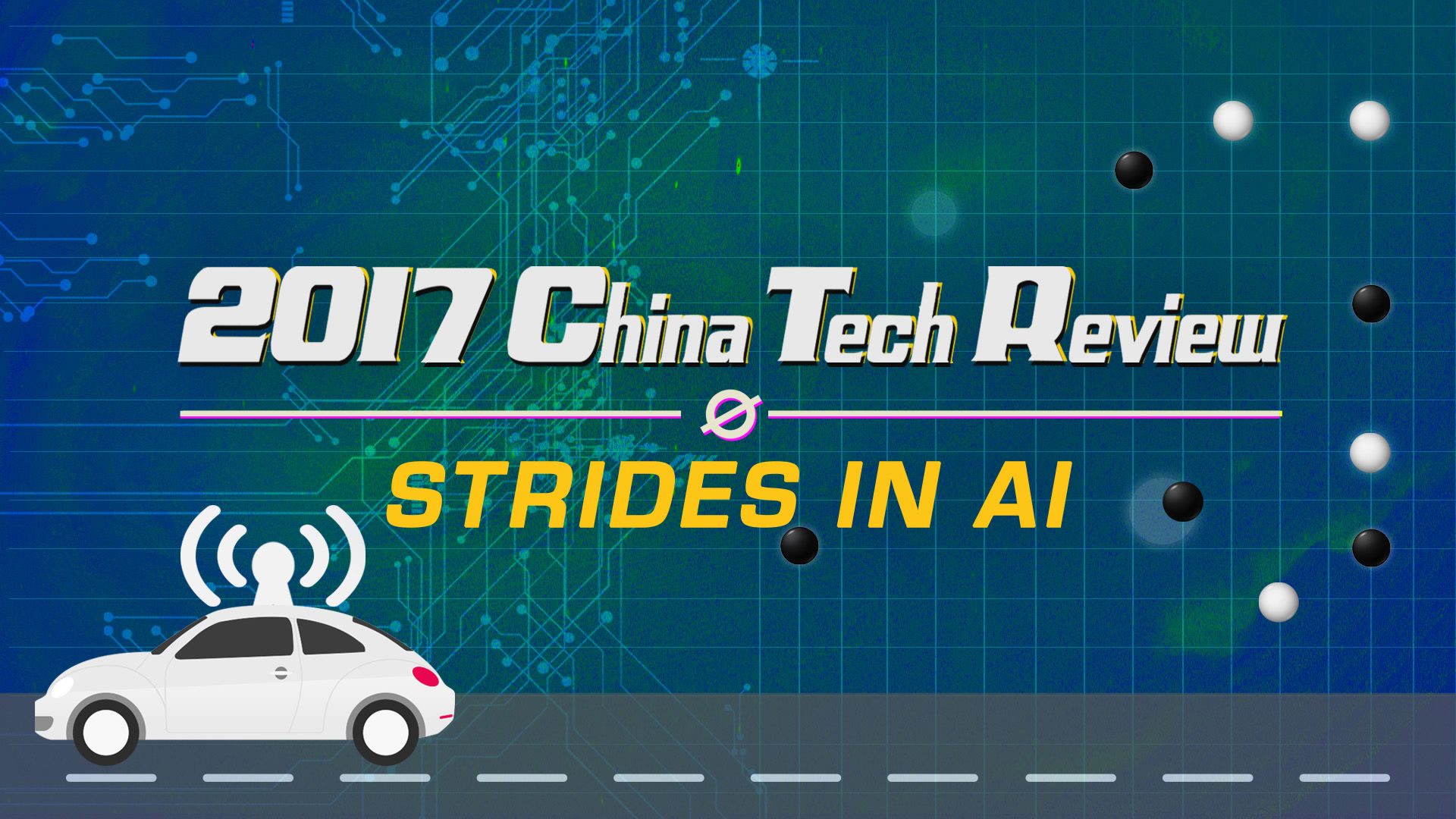
2017 witnessed a big leap in the development of artificial intelligence (AI) – intelligence displayed by machines rather than human or animals. CGTN has compiled a list of the major events that took place in tech this year.
Human Go player vs. AlphaGo
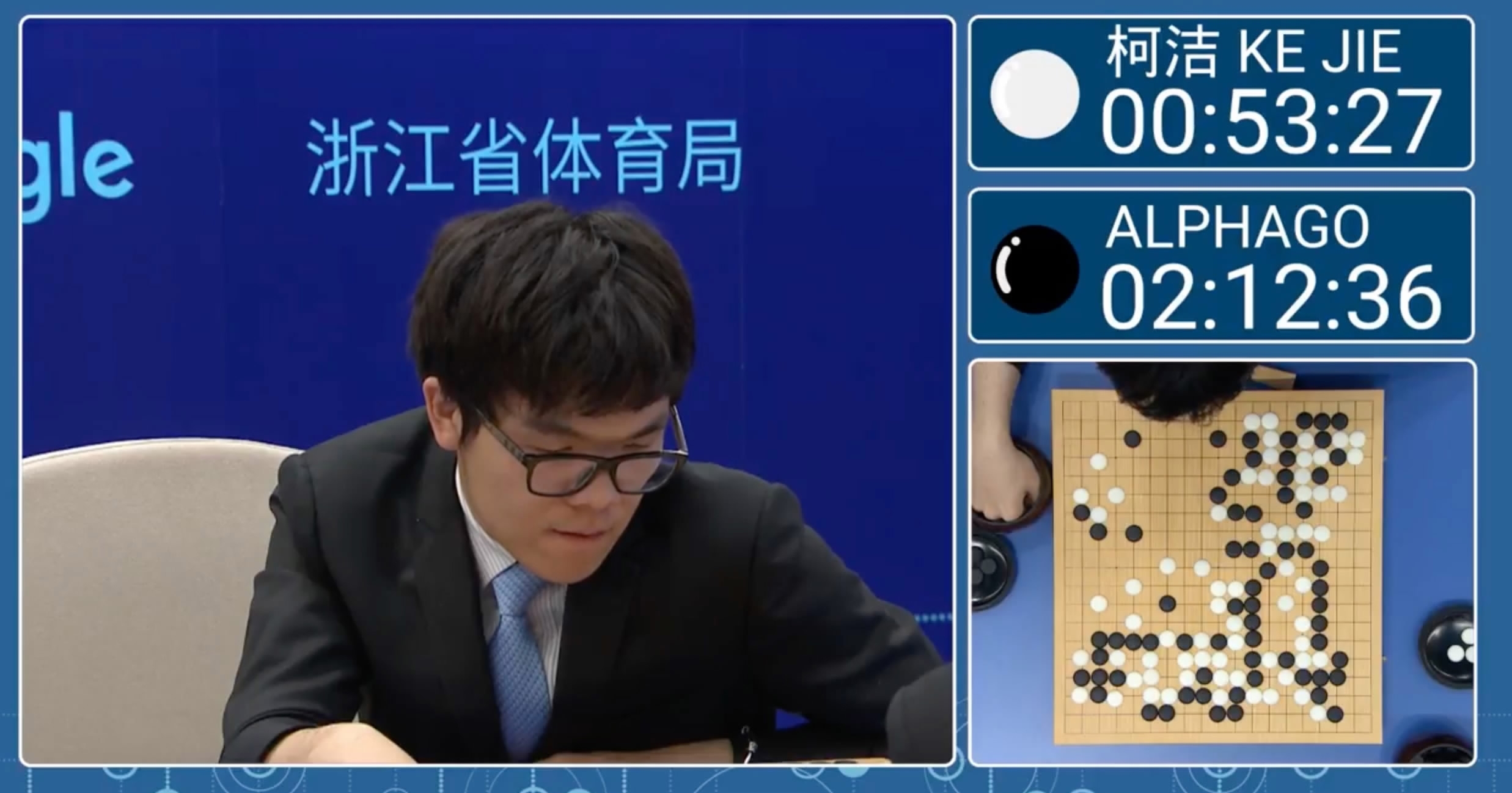
The weiqi match between Ke Jie and AlphaGo. /CGTN Photo
The weiqi match between Ke Jie and AlphaGo. /CGTN Photo
AI might have been unfamiliar to most people before the weiqi, or Go, match between 19-year-old Chinese player Ke Jie and a computer program, AlphaGo.
The much-anticipated match took place from May 23 to 27 in Wuzhen, a town in east China's Zhejiang Province. Ke Jie, recognized as the world’s best player and a Chinese prodigy, lost the three-part match to his AI opponent though he fought hard to catch up.
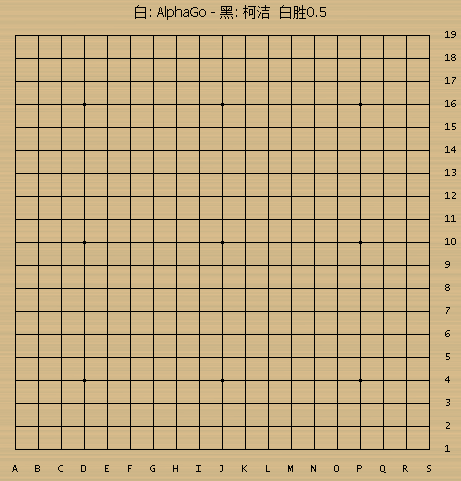
AlphaGo (white) defeats Ke Jie (black) /Web Photo
AlphaGo (white) defeats Ke Jie (black) /Web Photo
“AlphaGo is a machine. The gap between human players and AlphaGo, is like a race between a car and a plane, or even a spacecraft,” said Nie Weiping, vice president of the Chinese Weiqi Association, and a Chinese weiqi legend, one hour after the match.
Actually, the scientists who created AlphaGo didn’t need to master weiqi themselves; rather, it was developed through an algorithm called machine learning, or deep learning. In October, the developers of AlphaGo Zero, a better version of the AI phenom, announced that it is capable of learning to play simply by playing games against itself, starting from completely random play, and can learn to invent better strategies beyond any human’s knowledge of weiqi.
Ke Jie commented on the remarkable accomplishments of the new program via his Weibo account: "A pure self-learning AlphaGo is the strongest, humans seem redundant in front of its self-improvement.” But for the developers, “the idea of AlphaGo is not to go out and defeat humans, but actually to discover what it means to do science.”
Top Chinese tech firms bet on AI
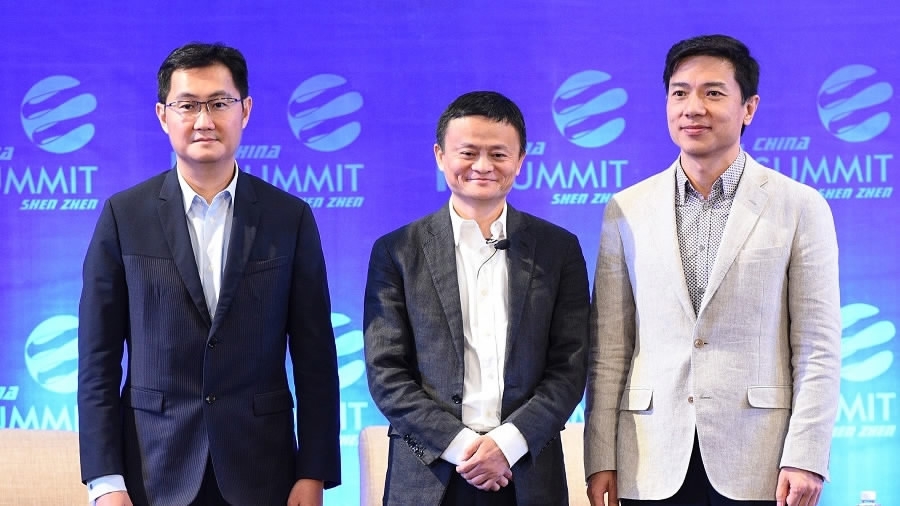
Heads of China’s "BAT" /Xinhua Photo
Heads of China’s "BAT" /Xinhua Photo
China’s three largest software companies, known as BAT – an acronym of the initial letters of Baidu, Alibaba and Tencent – have poured a lot into the field.
Robin Li, founder of Baidu, said the golden age of the internet sector is coming to an end and his company is transforming itself into a firm based on AI, during Baidu Create 2017 on July 5.
The company has invested heavily in machine-aided study, image recognition, voice recognition and driverless vehicles, including its Apollo self-driving car initiative, as part of the cooperation with US technology company Nvidia.
Early in March, Baidu also set up a national deep learning technology lab in Beijing, gathering AI experts from Baidu, Tsinghua University, Beijing University of Aeronautics and Astronautics, and China Academy of Information and Communications Technology.
Chinese e-commerce giant Alibaba Group announced the launch of an innovative global research program, the “Alibaba DAMO Academy,” during The Computing Conference 2017 in mid-October.
The company is investing 100-billion-yuan (15 billion US dollars) in DAMO, which will launch eight research bases and hire researchers to work on AI, quantum computing and fintech.
In May, Tencent, another Chinese tech giant, opened an AI lab in Seattle aiming to attract developers from the US. The company in June opened its Tencent Cloud platform, which hosts AI technologies in computer vision, intelligent speech recognition and natural language processing, to the public. Later in July, it announced the launch of its AI accelerator, a program that provides resources to help AI entrepreneurs escalate their game.
Also, China’s Ministry of Science and Technology in November identified BAT and iFlyTek as the “national team” to boost the development of AI technology in the country.
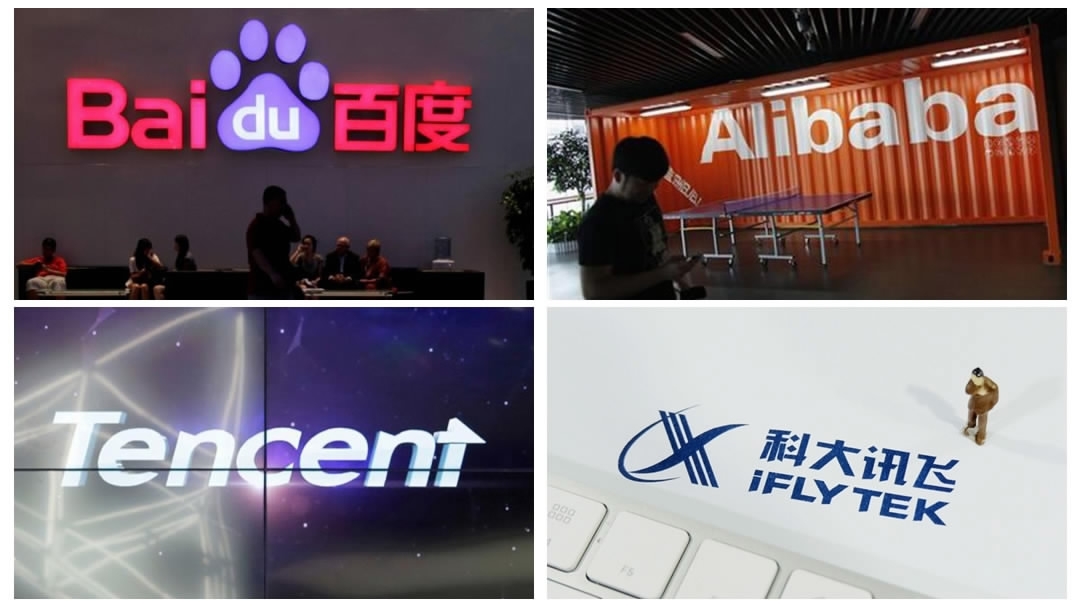
The four domestic tech companies identified by China’s Ministry of Science and Technology as the “national team.” /CGTN Photo
The four domestic tech companies identified by China’s Ministry of Science and Technology as the “national team.” /CGTN Photo
By building open innovation platforms in four different fields, the four tech giants are expected to help the country accelerate the process of reaching its goal of creating a world-leading domestic AI industry by 2030.
AI chip
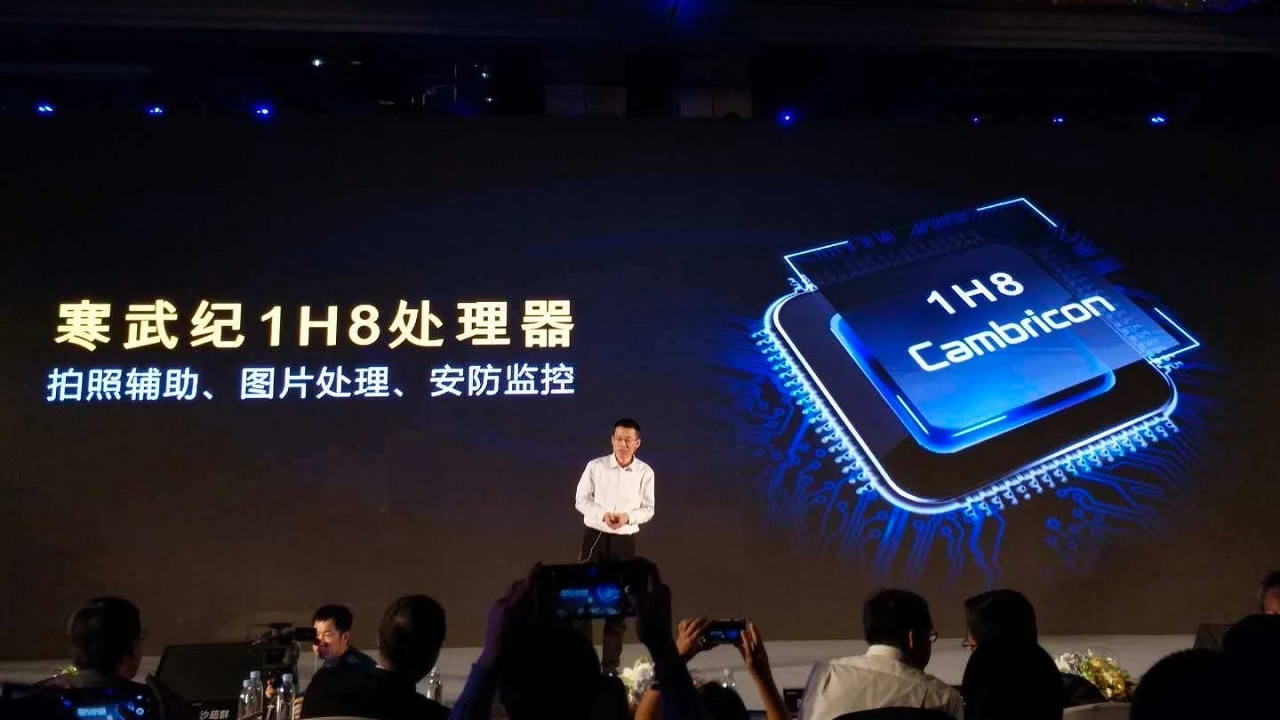
Chen Tianshi introduces the Cambricon 1H8 AI chip. /Web Photo
Chen Tianshi introduces the Cambricon 1H8 AI chip. /Web Photo
Cambricon Technologies Co., a Chinese AI chip startup backed by Alibaba Group Holding Ltd., unveiled its ambition to have 1 billion devices using its semiconductor intellectual property in three years on November 6.
"We aim to account for 30 percent of China's high-performance AI chip market in three years. The goal is within our reach," said Chen Tianshi, CEO of Cambricon.
The move is in line with China's broad push to build world-class AI processor companies that can rival Intel, Qualcomm and Nvidia.
Last year, the company developed Cambricon-1A, the world's first commercial chip for deep learning applications, and three new AI chips, namely Cambricon 1H8, 1H16 and 1M, which were launched in November.
World's first robot 'citizen'
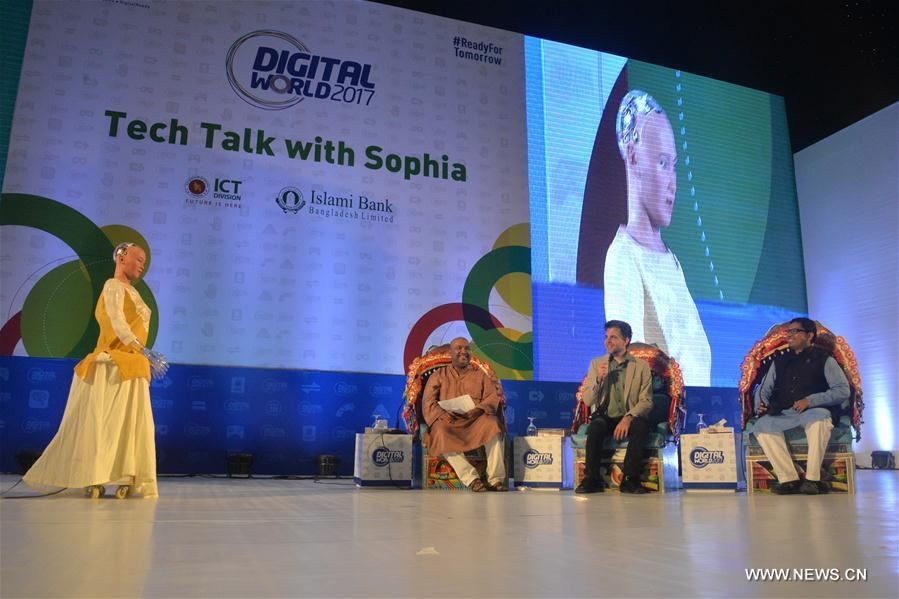
Humanoid robot Sophia (L) attends the "Digital World 2017" exhibition in Dhaka, Bangladesh on Dec. 6, 2017. /Xinhua Photo
Humanoid robot Sophia (L) attends the "Digital World 2017" exhibition in Dhaka, Bangladesh on Dec. 6, 2017. /Xinhua Photo
Sophia, an advanced humanoid robot developed by Hong Kong-based Hanson Robotics, was granted Saudi Arabian citizenship in October, making it the first robot to receive citizenship status anywhere in the world.
The robot has conducted several intelligent conversations with humans. She talked about the future of AI at the Future Investment Initiative summit in Riyadh, during which time she was awarded the citizenship. She also expressed her gratitude, saying "Thank you to the Kingdom of Saudi Arabia. I am very honored and proud for this unique distinction. It is historic to be the first robot in the world to be recognized with citizenship."
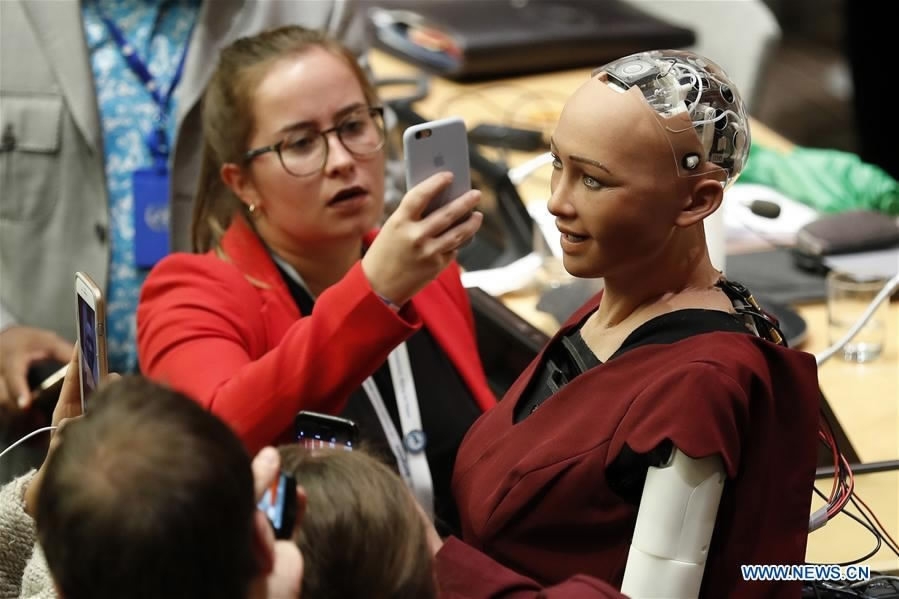
Humanoid robot Sophia at the UN meeting. /Xinhua Photo
Humanoid robot Sophia at the UN meeting. /Xinhua Photo
About 10 days before receiving her citizenship, Sophia attended a UN meeting themed “The Future of Everything – Sustainable Development in the Age of Rapid Technological Change” in New York, US, and answered questions.

SITEMAP
Copyright © 2018 CGTN. Beijing ICP prepared NO.16065310-3
Copyright © 2018 CGTN. Beijing ICP prepared NO.16065310-3